This episode of the Crime Cafe podcast features my interview with crime writer Indy Perro.
Don’t miss our discussion of Central City, small towns, crime, and a bit of philosophy! 🙂
Before I bring on my guest, I’ll just remind you that the Crime Cafe has two eBooks for sale: the nine book box set and the short story anthology. You can find the buy inks for both on my website, debbimack.com under the Crime Cafe link. You can also get a free copy of either book if you become a Patreon supporter. You’ll get that and much more if you support the podcast on Patreon, along with our eternal gratitude for doing so.
Check us out on Patreon: https://www.patreon.com/crimecafe
Debbi (00:54): But first, let me put in a good word for Blubrry podcasting.
I’m a Blubrry affiliate, but that’s not the only reason I’m telling you this. I’ve been using Blubrry Podcasting as my hosting service for my podcast for years and it’s one of the best decisions I ever made. They give great customer service, you’re in complete control of your own podcast, you can run it from your own website, and it just takes a lot of the work out of podcasting for me. I find for that reason that it’s a company that I can get behind 100% and say, “You should try this.” Try Blubrry. It doesn’t require a long-term contract, and it’s just a great company, period. It also has free technical support by email, video, and phone, so you can get a human being there. Isn’t that nice?
If you want to podcast, try out Blubrry. No long-term contract, excellent distribution, and great technical support, too, by email, video, and on the phone. I’ve included an affiliate link on this blog.
Download a copy of the PDF transcript of this episode here.
Debbi (00:54): Hi everyone. My guest today is a novelist who identifies himself as an independent thinker. Yes, I like those and a recovering academic. He has a degree in history and graduate degrees in religious studies, comparative literature and education. That’s quite a bit to recover from <laugh>. For more than a decade, he’s taught philosophy, religious studies, writing, and literature. His debut novel is called Central City. I’m pleased to have with me today’s guest, Indy Perro. Hi, Indy. How are you doing today?
Indy (01:35): I’m doing well, Debbi. Thanks for having me.
Debbi (01:37): You know, I was gonna try to roll my Rs on your name, but I thought nope, no way. I can never roll my Rs. Is it a Spanish name?
Indy (01:46): Yeah. Yeah. Perro is the Spanish word for dog.
Debbi (01:49): Yes. Yes it is. <Laugh> And I can never roll my Rs when I say dog in Spanish. So I will always have a speech defect in Spanish. Your credentials just blow me away. You must have a lot of material, ideas for novels from your experiences.
Indy (02:09): Yeah. they tend to be a little bit philosophical in nature.
Debbi (02:15): So I noticed that. <Laugh>
Indy (02:17): So my, yeah, my ideas tend to be built around questions and then I develop the story to help me test out those questions and find the tension in the answers. Right. And that way there tends not to be an easy answer, but instead I can tease out different perspectives.
Debbi (02:39): I really like that. That’s really cool. What inspired you to write your novel?
Indy (02:48): Oh, so Central City is inspired by the environment I grew up in. I grew up in a Midwestern city and at a time when, you know, crime rates were higher, you know, I wanna say higher than they are now, but at least higher than they were before the pandemic. And you know, I’m old enough now that I’ve seen sort of American society ebb and flow in several different ways and you know, crime rates dip, and then rise back up. The neighborhood that I grew up in doesn’t really exist anymore. It’s now like a commercial and industrial area. Other neighborhoods that were, you know, my stomping grounds as a kid have become gentrified or have gone the other direction, you know, depending upon what’s happened. And I find that history fascinating. And I think that the city, you know, I’ve also, since I, I moved away from the city, I’ve lived in some pretty rural areas and was surprised to find that people have kind of weird ideas about what cities are and the way that they’re portrayed on television and the movies. I didn’t really realize that, you know it’s, it’s not terribly accurate and it’s heavily dramatized. And so I wanted to tease out how does the city fit mythologically in the American imagination? How do we think about that? How do, how is that a testing ground for who we are? How do we see the other in the context of the city and how do we see ourselves as a reflection of our communities?
I’m old enough now that I’ve seen sort of American society ebb and flow in several different ways and you know, crime rates dip, and then rise back up. The neighborhood that I grew up in doesn’t really exist anymore.
Debbi (04:31): I’m often struck with the differences in the way people view cities or rural areas, depending on where you live. If you live in the city, you have no clue what it’s like to live in a small community.
Indy (04:44): Absolutely.
Debbi (04:45): And vice versa.
Indy (04:46): That’s a great, yeah. That’s like totally correct.
Debbi (04:50): Yeah, absolutely. I have to say your website is just outstanding. I love it. And it really focuses on Central City almost as a kind of character in itself. Did you do a lot of world building when you created your first novel?
Indy (05:11): Yeah. and I built the different neighborhoods based on different places that I’ve lived or visited or have some sort of connection to. And a lot of them are based on real places and built kind of the architecture and geography of the city and then built the neighborhoods out from that. And then, and there is a history to the city stretching back to its founding as a trading post. And all of these things are things that I’m working on developing for the website, but also developing into their own stories. And on the website, you can find a handful of short stories that develop the history of the characters. And in those, I’ve tried to develop some of the neighborhoods that maybe haven’t shown up in Central City yet, haven’t shown up in Journeyman, the sequel, quite yet, but they’re gonna be in the novel as, novels as the series progresses.
Yeah. and I built the different neighborhoods based on different places that I’ve lived or visited or have some sort of connection to.
Debbi (06:13): And you’re working on the sequel then?
Indy (06:15): The sequel’s done. And actually has it has been done for over a year. I’ve had some health issues. I was a competitive athlete for my, for a number of years and have been dealing with some of the repercussions from that lately.
Debbi (06:36): <Laugh> I hear you. I mean, I deal with my own health issues and they’re terrible. <Laugh>
Indy (06:41): Yeah, they can be, they can be. Yeah. So I’ve had a series of surgeries to help try to get me back back to where I was. Mixing that with the pandemic and everything else, I’ve delayed publishing just until I can do the level of promotion that I want and, and me, too.
Debbi (07:01): That’s a smart move, a very smart move. Let’s see. I, I read your short story “Angel Falling” and was both struck and amused by the Archangel Michael and Dante’s Nine Circles of Hell, all the references there. I, I think of mythology as something we see a lot in storytelling, but you really seem to dig into it. I like that. Can you talk about that a little bit?
Indy (07:32): Absolutely. so I feel that art one of the reasons that art exists is that we can’t really have a conversation with someone about something that they don’t already understand. Right? You can, you know, take the lecture route or try to explain something to someone, if that’s your perspective. And we have, you know, the sciences for that, etc., but when we get to the humanities, what we’re doing is trying to bring into life an experience for another person, right? And historically mythology existed for that purpose. And when I set out to write and shifted from an academic career, I had to ask myself and, and sit with this question of why am I doing this? What, what is bringing this to life for me? And as I mentioned about the city being a personal environment and an environment that I care about, I also care about community. And so asking these questions about what is a contemporary mythology, right?
(08:44): What stories do we have, and do we share with one another that breathe the life into how we see one another, how we see ourselves, what are the stories we tell about ourselves in order to generate meaning in our lives and how do we have shared stories that create meaning in our lives? And when I look at the two characters of Vincent Bayonne and Kane Kulpa, who are the two main characters of the novel Central City, I see Kane as a bit of a destroyer and a redeemer mythological character. And I see Vincent Bayonne, who’s a police detective, as a preserver character, and they both exist in a context historically in the early nineties. And the series of novels will go from ’92 to 2006, where crime rates are falling, but also violent crime is, you know, manifesting in different ways and cities are gentrifying and perhaps the public’s perception and willingness to accept crime changes dramatically and declines dramatically.
I feel that art one of the reasons that art exists is that we can’t really have a conversation with someone about something that they don’t already understand.
(09:55): So the solutions that they’re finding for with Kane as a career criminal and Vincent Bayonne as a police detective, who isn’t necessarily corrupt, but is compromised, right? The two of them are finding solutions in order to live in a world that they understand to be chaotic. As these other forces are creating a sense of order that they don’t understand and don’t know how to live. Right. And, and so in, in “Angel Falling”, which is Bayonne’s first homicide detective, he’s been a police detective for a number of years. He was a patrolman, he was a Marine medic in Vietnam. And then he was a narcotics detective. He spent his entire adult life immersed in chaos and is not at all a violent individual. Right? and he’s struggling to see and to understand what’s going on in this murder mystery, which then as you see, you have these two individuals who are the suspects of the murders, one of which is this chaotic figure. And, and another one is very much an angelic figure or attempting to be, and they’re fighting and struggling within that context as the police detectives outside of it are trying to interpret it, trying to understand it and trying to figure out what these supernatural or like mildly supernatural elements are.
Debbi (11:27): Why are these people doing these things?
Indy (11:29): Right. And how do we make sense of it?
Debbi (11:31): How do you make sense of it? Good question. How do you make sense of anything? Let’s see. How would you describe your writing to a reader who’s unfamiliar with your work? Would you say it tends to be more toward police procedure? Noir? Is there a category of any sort <laugh>?
Indy (11:53): I don’t know. That’s an interesting question. I mean, I would call them crime novels because crime is at their center. But, and I lean on like a noir aesthetic because it appeals to me simply as an aesthetic principal. But, and I don’t know that I would call them police procedurals necessarily because I don’t know. I mean, there’s so many writers who do such a great job of really being honest and truthful. I mean, Ed McBain is a great example of someone did the research and is doing their best to be very honest and, and accurate. I’m not really doing that. I mean, I I’ve done research in order to maintain verisimilitude, but I’m not, if I make a mistake, I’m not super worried about it. I’m not trying to create a world that, that replicates reality in that way. So I would say a noir crime novel with a philosophical twist.
I would say a noir crime novel with a philosophical twist.
Debbi (12:59): I love that description. That is so cool. What writers have most inspired your work?
Indy (13:07): Oh this is a great question. So I, if I may, I would, I would answer it in sort of three different ways. The first, as a shameless plug, on indieperro.com, my personal author website, I do have book analyses that I publish and I’ve tried to stick with for the most part crime writers, noir writers Chester Himes, you know, Ed McBain isn’t on there yet. But Lawrence Block is, people like that. James Sallis, James Crumley and, and those authors have definitely influenced my work. But, and my analyses are not reviews. They’re talking about ways that they’ve influenced my work and what I’ve taken from them. But they don’t make me wanna write because they do such a great job of what they do. Right? So I read them and I don’t, I don’t see something that I necessarily can improve on.
I do have book analyses that I publish and I’ve tried to stick with for the most part crime writers, noir writers Chester Himes, you know, Ed McBain isn’t on there yet. But Lawrence Block is, people like that.
(14:12): And sometimes that really does motivate me to write, when I read a book and there’s something in here that I want to change, or I wanna do my own way, that motivates me. And so writers of a more literary bent like Cormac McCarthy, or I I’m actually reading John Jakes right now, his North and South trilogy. And not that he’s necessarily that type of literary author, but that historical fiction motivates me to write because it’s not something I wanna do. Right. I don’t wanna write like Cormac McCarthy. I don’t wanna write like William Faulkner.
Debbi (14:54): Right.
Indy (14:56): But when I read them, I get ideas that I then wanna bring to my own work. But with my degrees and with my background, my academic background, I’ve read a lot of nonfiction and in the same way that also motivates me because I’ll read a book on, you know, ecology or something, and it’ll spark an idea in my mind that will then become a story and that I’ll need to get out of my system.
Debbi (15:28): I know exactly what you’re talking about. <Laugh> I was inspired by a, a science book to write a thriller. So <laugh> it’s amazing. What’s out there that you can get ideas from. Let’s see. How much research do you do when writing a book?
Indy (15:49): That’s an interesting question. I, it depends on what we consider research, right? So there, there are moments when you know, I’m working through something and I need to find out about a type of gun or a type of automobile, right. Detective Vincent Bayonne drives a Chevy Vega and I’ve had to go back and explore that type of car. And it actually, initially the idea for that came from a documentary that I was watching. And it just seemed like the car that would fit, I don’t know a ton about cars, right? So questions like that to get the description right. To get those things. They’re always those side journeys. But in terms of like structuring the story or doing, trying to keep my history as accurate as possible, maintaining those things I would rather have some slippage there. Right. I’d rather have the, the ability to move around and, and wiggle which is why it’s a fictional set. It’s why I didn’t write about Chicago or New York City. Right? Or St. Louis, because I didn’t want to have to adhere to that and have someone who lives there say, well, this street, isn’t where you say it is. <Laugh> I wanna make whatever street wherever I want it.
Debbi (17:19): I like that approach. That’s great. It’s kind an amalgam of cities.
Indy (17:24): Yeah.
Debbi (17:26): Let’s see. Oh, what advice would you give to somebody who would like to make a living as a writer?
Indy (17:35): So that’s difficult because you know, there’s making a living is one thing and being a writer is another, and you can absolutely make a living as a writer. You can make a living as, you know, creating handcrafted furniture. You can make a living as a blacksmith, you know, doing all kinds of things. If you understand the numbers and know how to function within a market and that is its own task. And there are so many great resources out there now for both independent authors, as well as authors who work through a public system and so on and so forth. But terms of being a writer, that’s something else. So in terms of making a living, the advice I would give is understand your business model and have a business model, right? That’s the secret to making a living doing anything in terms of being a writer, I would say, know why you’re writing and why you’re doing this. Because when you get that business model, you’ll find out that you have to write and you have to write consistently and you have to maintain an audience and you have to build and develop that audience. And in order to do that, you need to know who you are and why you’re doing it, right?
So in terms of making a living, the advice I would give is understand your business model and have a business model, right? That’s the secret to making a living doing anything in terms of being a writer, I would say, know why you’re writing and why you’re doing this.
Debbi (19:04): Yes. Yes. I think there’s a lot of trust involved in this sort of relationship.
Indy (19:11): Trusting your audience?
Debbi (19:13): Trusting the audience and the audience trusting you.
Indy (19:16): Yeah. And knowing that yeah. Knowing that you’re gonna give them what it is that you’re creating. And that follows, you know, I, I, I tend to do sort of a weird outlier. Like my writing is a little bit of an outlier and to your point, if you write thrillers or you write mysteries or cozy mysteries, right? You kind of stay in a lane. Right? And yeah, I’ve created difficulties for myself by kind of defining my own way. Right? I wouldn’t change it at all. You know, that’s, it’s who I am and what, it’s what motivates me. But to your point, if what you want to do is make, make a living as a writer. If you have specific goals, know what race you’re running, right? Because if you are trying to, to pave that path, your race is gonna be hard. Right?
Debbi (20:10): Exactly.
Indy (20:12): Yeah.
Debbi (20:13): If you wanna be the Grateful Dead of writers, understand that it’ll be a smaller audience, but very devoted.
Indy (20:20): Yeah, absolutely.
Debbi (20:22): Yeah. <laugh> is there anything else you’d like to add before we finish up?
Indy (20:31): I mean only, you know, those who, who are interested in my work, if this sparked interest for people, they can find, find me at indieperro.com. You can check out more about Central City at centralcitybooks.com and you know, my books are available at Amazon, Google Play, it’s iTunes, all of that. So hope Audible. So I hope people find me and, and enjoy the work.
Debbi (20:58): Well, I’m glad that you found me and that I got to find your book because I bought it on Kobo. <Laugh>
Indy (21:05): Oh, great.
Debbi (21:06): And I’ll get to read it. I’m looking forward to that.
Indy (21:09): Thank you.
Debbi (21:10): Well, it’s my pleasure. And thank you so much for being here and talking with us today.
Indy (21:15): Thank you.
Debbi (21:17): Sure thing. It’s my pleasure. And to everyone listening or watching, please leave a review, if you enjoyed the podcast, the episode, and check out our Patreon page where you can get access to bonus episodes, my writing, the early drafts, and more. Until next time, when I’ll be interviewing Thomas Bell, take care and happy reading.
*****
For the full experience! :) Become a patron of the Crime Cafe!
Thanks for coming by!

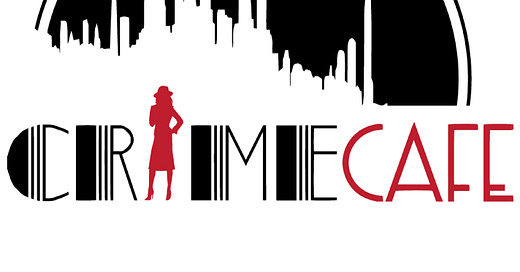



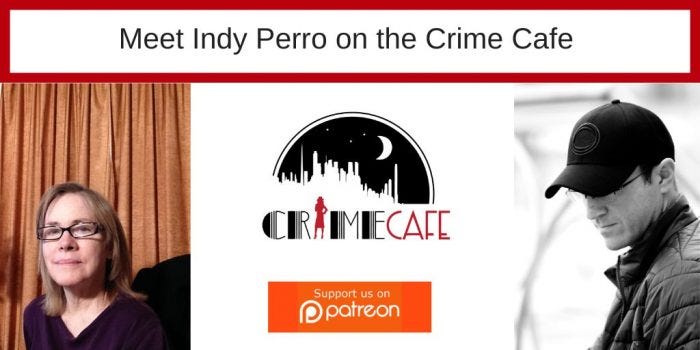


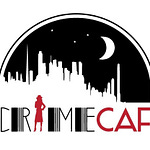
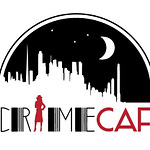
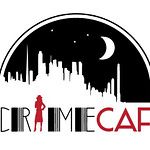
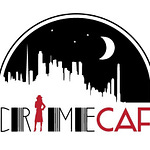

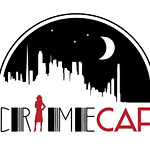


Share this post